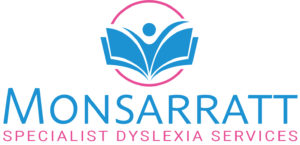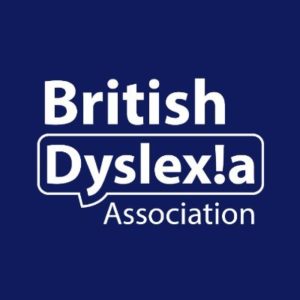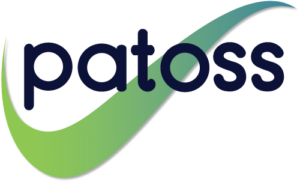
I work across the Tees Valley and North Yorkshire region and offer a friendly, sensitive and comprehensive approach when working with an individual to ascertain their strengths and barriers to their learning.
Dyslexia Diagnostic Assessments – £495.00
I offer full diagnostic assessments for both children and adults.
Many parents and students contact me for an assessment having wondered for some time if the difficulties they are seeing in a child’s or their own learning are due to dyslexia. You will receive a full diagnostic report outlining strengths and difficulties with recommendations for intervention and support and how skills can be developed further.
A full diagnostic assessment takes approximately three hours to complete, with short rest breaks so that the learner can perform at their best.
The assessment includes tests of reading accuracy, speed and comprehension, spelling, writing, phonological skills, speed of processing information, memory skills and verbal and non-verbal underlying ability.
What can you expect as an outcome?
A comprehensive report (between 25 -30 pages in length) within 15 working days from the date of the assessment.
All reports are written in accordance with current SASC guidelines.
click here for further details
The assessment is undertaken using a range of standardised tests.
A full cognitive profile is compiled from the background information provided, assessment results, teacher’s comments and observations made.
The outcome of the assessment will inform teachers /workplace (s) how to plan for effective interventions, through identifying:
● Preferred learning styles and helping to devise new strategies.
● Learning strengths and helping the learner to practice the new strategies.
● Attainment levels.
● Aspects of the curriculum that may interest / motivate the learner.
● Personal/social skills (persistence, dealing with difficulties, willingness to have a go)
Before any assessment you will receive a background questionnaire and a school questionnaire for the SENCo to complete, where applicable. These will need to be returned prior to the assessment.
It is important to ensure that vision and any visual difficulties have been checked prior to an assessment.
Following assessment, there will be some verbal feedback of initial findings and a full written report will follow about two weeks later.
Occasionally the assessment profile can be unclear and there may not be sufficient information to make an identification of a specific learning difficulty. In this case, a full report is still supplied and recommendations will be made to support identified areas of difficulty.
The Disabled Students’ Allowance provides extra financial help if you have a disability or a specific learning difficulty like Dyslexia. It is paid on top of the standard student finance package and does not have to be repaid. To apply for the Disabled Students’ Allowance evidence of the disability must be provided. In the case of Dyslexia, this would be a current up to date Dyslexia Assessment conducted by a Specialist Teacher holding a current Practising Certificate.
I hold an Assessment Practising Certificate and can assess students for DSA.
A full range of tests are administered and the assessment takes around three hours. A full report is written in line with current guidelines. This can then be submitted to Student Finance and the client’s university to arrange the necessary support and resources.
Click here for more information on how to apply for DSA
Shorter Literacy /Maths assessment (12-15 pages) -£300.00
A Literacy assessment looks at the following –
Verbal ability and expressive language skills
Visual ability (logical and non verbal reasoning skills)
Phonological awareness
Memory
Reading, writing and spelling
Handwriting and processing speed
A Maths assessment looks at the following –
Basic literacy attainment
Verbal ability and expressive language skills
Visual ability (logical and non verbal reasoning skills)
Memory
Processing speed
Mathematical ability using a standardised test investigating – Number sense, geometry, measures, mental computation, data analysis, calculation methods, applied problem solving
The report will include a thorough explanation of an individual’s strengths and the main barriers to their learning. Recommendations to support learning will be incorporated within the report.
* NB The shorter reports are not suitable for DSA
A Diagnostic Dyscalculia assessment – £545.00
A full Dyscalculia assessment using a range of standardised tests takes approximately 3-4 hours.
A full cognitive profile is compiled from the background information provided, assessment results, teacher’s comments and observations made.
The outcome of the assessment will inform teachers /work place(s) how to plan for effective interventions, the assessment includes;
Tests of verbal, visual and visual-spatial reasoning and cognitive processing (such as memory, phonological processing, processing speed and accuracy, visual spatial sequential skills) in order to identify domain general strengths and weaknesses within the cognitive profile.
Tests of literacy and mathematics skills in order to identify strengths and weaknesses within the attainment profile.
Informal, qualitative tests of understanding of number that use subitising, symbolic and non-symbolic magnitude comparison, ordering and concrete tools to explore concept of number. This could include screeners designed to explore number sense.
Standardised measures of Arithmetic (+, -, x, ÷). Timed and untimed to establish what difference time pressure makes upon performance.
Mathematics reasoning and problem solving, including word problems to explore whether the difficulties are related to number, or mathematical terminology, or language more generally.
Access Arrangements for external exams at Key Stage 4 – I hold the relevant Level 7 qualifications and experience to undertake the assessments on behalf of Secondary Schools and Sixth Forms/Training providers – advice can be given to SENCos on meeting the JCQ regulations.
Upon completion of the assessments, where appropriate the completed Form 8 is forwarded to school electronically and securely.
Access arrangements for external examinations at Key Stage 4 are determined by the Joint Council for Qualifications who represent a range of exam boards. Access Arrangements are pre-examination adjustments for candidates based on evidence of need and normal way of working.
Access Arrangements allow candidates/learners with special educational needs, disabilities or temporary injuries to access the assessment without changing the demands of the assessment. For many learners’ this may raise the attainment for the individual in the school.
All testing and recommendations for exam concessions is in accordance with JCQ regulations.
The Equality Act 2010 requires an Awarding Body to make reasonable adjustments where a disabled person would be at a substantial disadvantage in undertaking an assessment.
A reasonable adjustment for a particular person may be unique to that individual and may not be included in the list of available Access Arrangements.
How reasonable the adjustment is will depend on a number of factors including the needs of the disabled candidate/learner. An adjustment may not be considered reasonable if it involves unreasonable costs, timeframes or affects the security or integrity of the assessment. A reasonable adjustment may include one or more of the following –
● A reader/computer reader
● A laptop
● A scribe
● Additional time
● Oral language modifier
Exam Concessions Fee: £110.00


